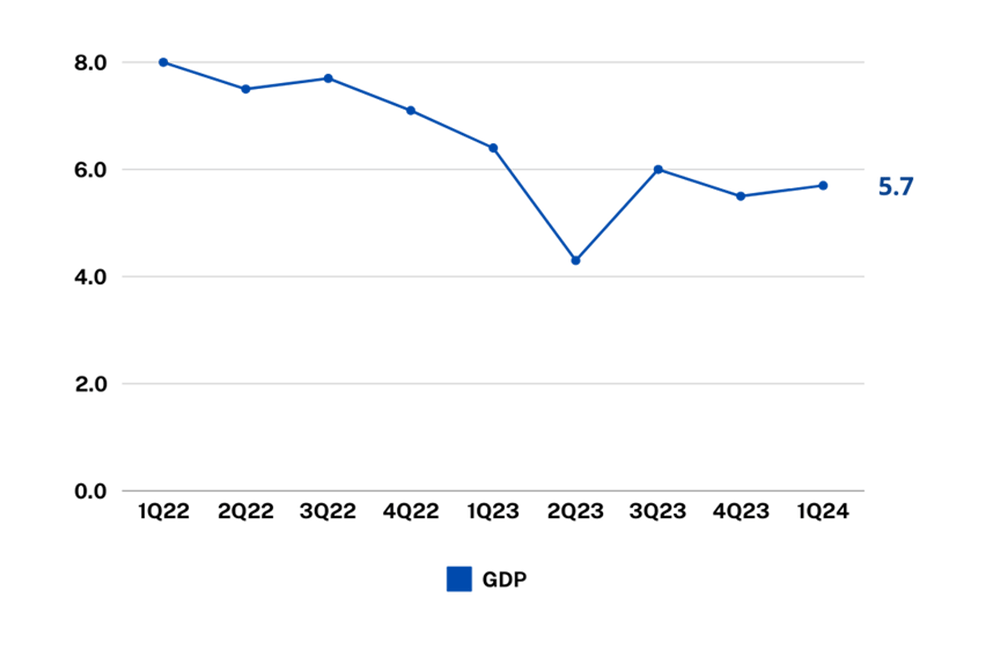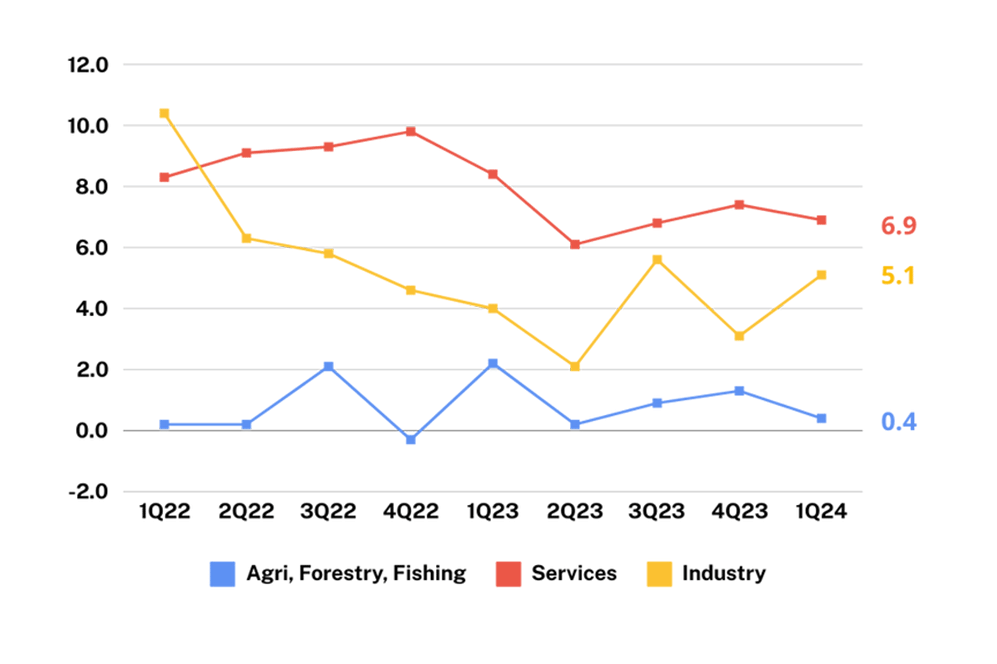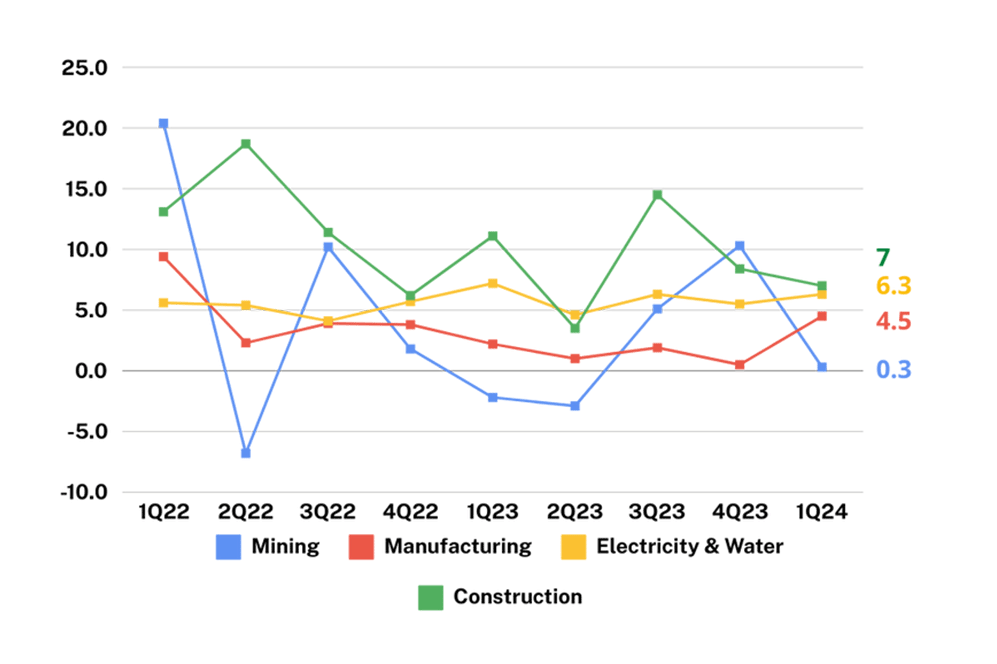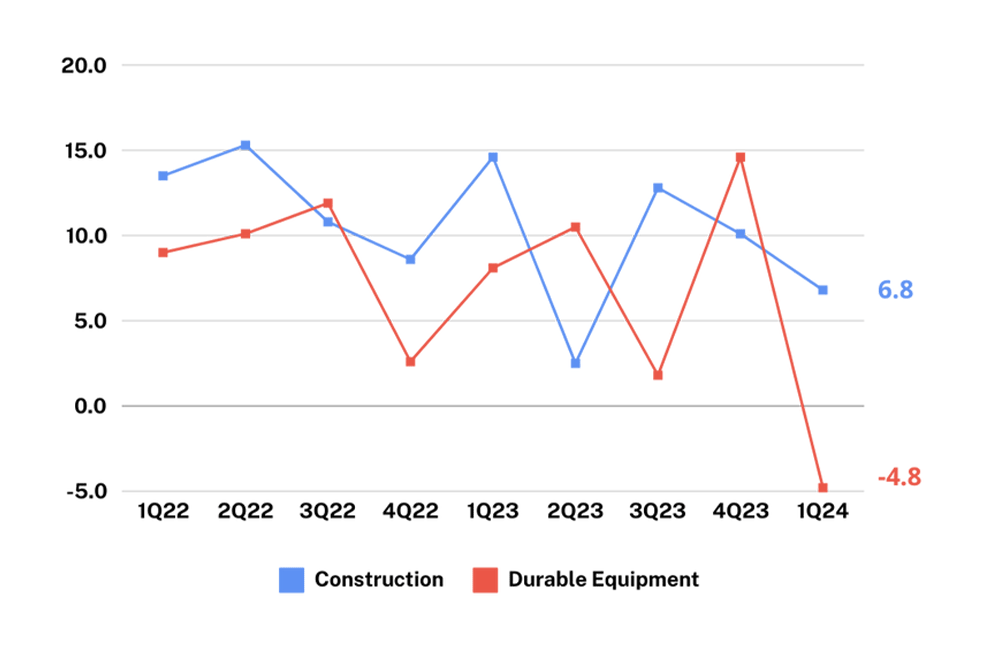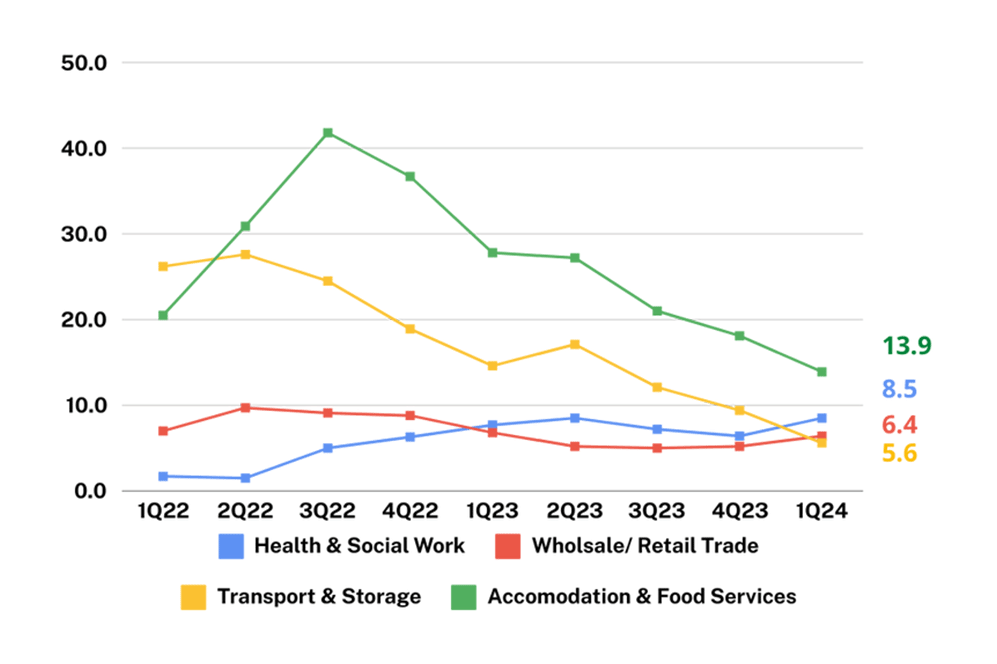PH Economy Expands by 5.7 in Q1 2024;
Falls Below Government Target

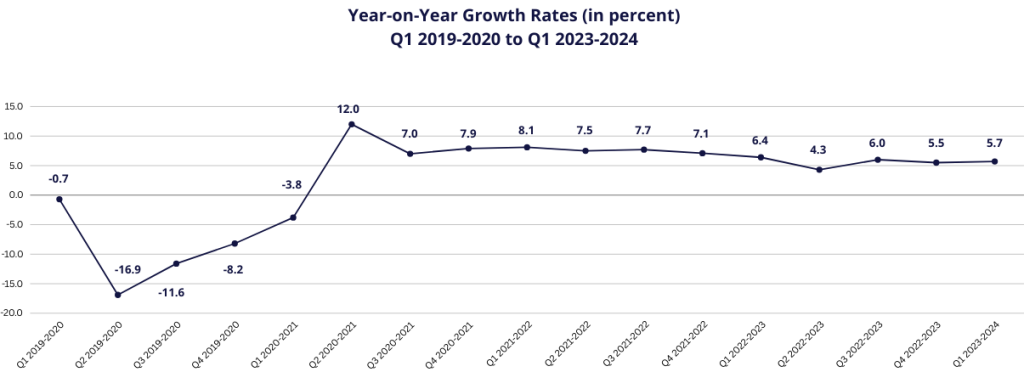
09 May 2024 —
The Philippine economy in Q1 2024 grew by 5.7% from 5.5% in the previous quarter. The government adjusted its economic growth targets downward, aiming for 6% to 7% this year instead of the previously set 6.5% to 7.5%. This also falls below the median forecast of economists at 5.9% and the slowest start of the year growth rate since the pandemic (Q1 2021 at -3.8).
On the demand side, Government Spending rebounded in Q1 2024, increasing by 1.7% after a contraction of -1.0% in the previous quarter. Household Spending, however, slowed down, from 4.6% compared to 5.3% last quarter. Investment (gross capital formation) contracted substantially to 1.3% from 11.6% in Q4 2023. On the other hand, Exports of goods and services grew positively at 7.5%, while Imports of goods and services expanded to a more moderate 2.3%. On the supply side, Services grew by 6.9%, Industry by 5.1%, and Agriculture by 0.4%.
Despite the lower than expected results, NEDA Secretary Arsenio Balisacan noted that the Philippines’ GDP growth rate is still in a good position regionally. The Asian Development Bank Philippines country director Pavit Ramachandran said that the Philippines is “one of the frontrunners in the growth leaderboard in the region, anchored on strong macroeconomic and fiscal policy effectiveness.” However, he noted that the Philippines must improve its ease of doing business as it lags behind in investments. The ADB also warned that El Niño and the possible La Niña can contribute to driving up inflation, which has been accelerating for three consecutive months with April 2024 inflation at 3.8% but still within the government target of 2-4%. Further concerns on inflation have been raised by the Banko Sentral ng Pilipinas. A BSP study found that for every one-degree Celsius temperature rise, a 0.77 percentage point increase in inflation can be expected. Data from the Department of Agriculture also showed that agricultural damage from the El Niño has reached Php 3.94 billion, affecting 73,713 farmers and fisherfolk.
To address issues surrounding the ease of doing business and to accelerate flagship projects , Sec. Balisacan mentioned that “Recently the President issued Executive Order no. 59 addressing causes of those delays. For example the delays in issuing right of way, permits, and so on by national government, regulatory agencies, and LGUs. We’re working closely with the Anti-Red Tape Authority (ARTA) to ensure this EO is implemented effectively so that we won’t see any delays in implementation of infrastructure projects.” He also emphasized the need for human capital development especially with the rise in artificial intelligence. Sec. Balisacan said that “what matters now is the quality of our employment, whether formal or informal. We need to get investments into the right places, and now these emerging technologies, to create those high-quality jobs. So that increased employment will result in increased incomes.”
Growth in %
Insights from Key Economists
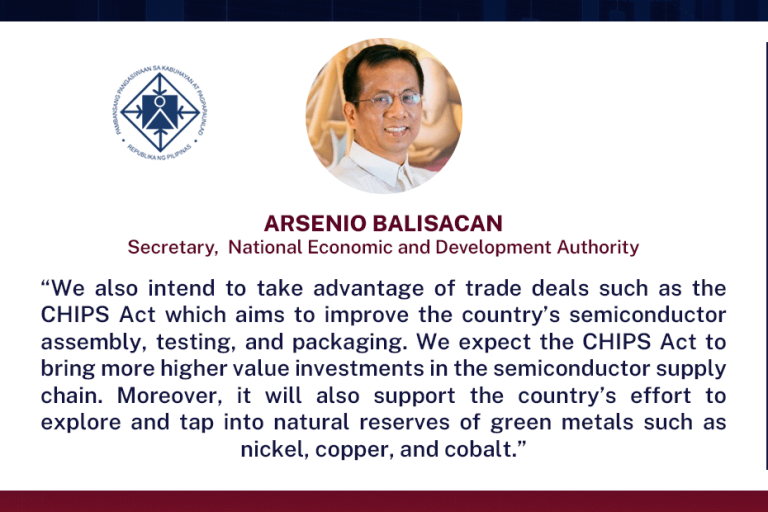
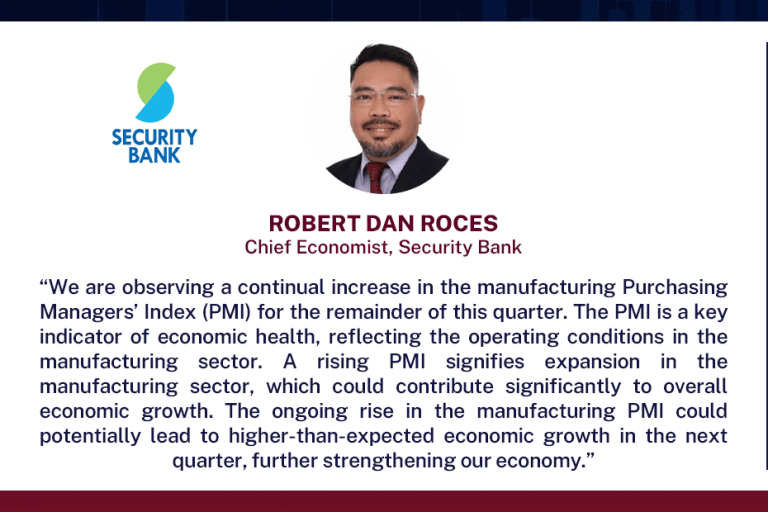
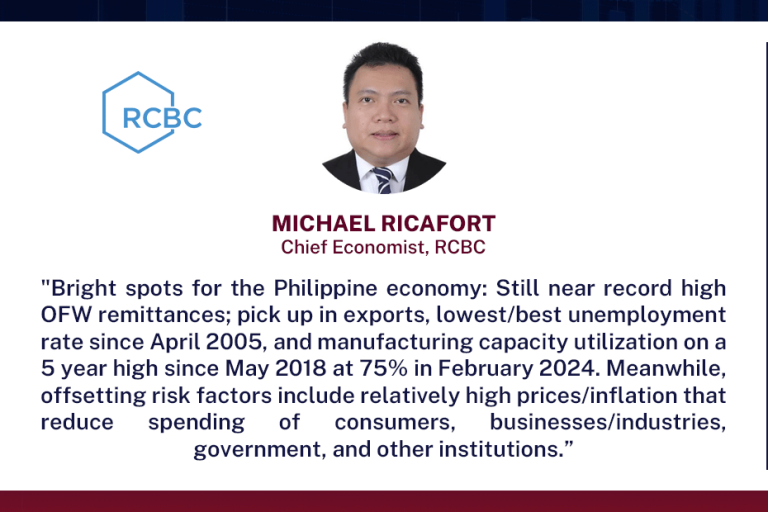
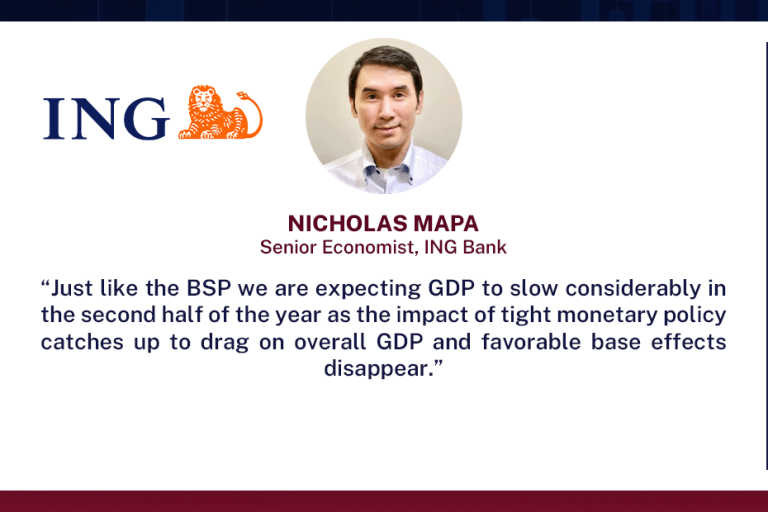
Co-presented by MBC's official Economy Partner

Share MBC's GDP Insights on Social Media
MBC Economy Dashboard
The Makati Business Club (MBC) pilots its Economy Dashboard and provides a snapshot of key socio-economic data to help executives and policymakers make better decisions in today’s fast-changing economy.
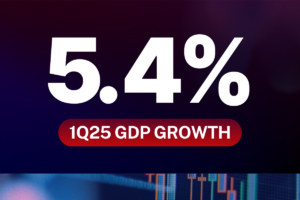
PH Economy Grows by 5.4% in Q1 2025; Faster Than Previous Quarter
PH ECONOMY GROWS BY 5.4 IN Q1 2025, FASTER THAN PREVIOUS QUARTER The Philippine economy grew by 5.4% in the 1st quarter of 2025, slightly
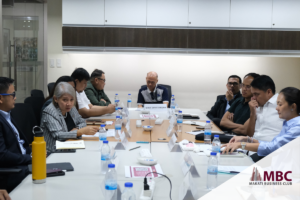
Policy Note: Waste-to-Energy Momentum Builds in the Philippines
Policy Note: Waste-to-Energy Momentum Builds in the Philippines 24 June 2025 – Key government agencies and private stakeholders came together at the Makati Business Club
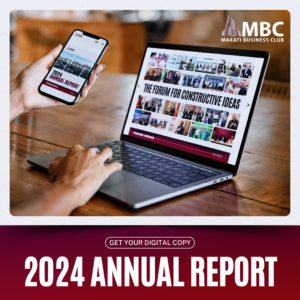
2024 MBC Annual Report
2024 Annual Report DOWNLOAD (HIGH RESOLUTION) SEE PAST ANNUAL REPORTS Latest MBC News, Statements, and Policy Notes MORE MBC NEWS

Policy Note: Private Sector Eager to Unlock Offshore Wind Potential, Calls for Clarity and Coordination
Policy Note: Private Sector Eager to Unlock Offshore Wind Potential, Calls for Clarity and Coordination 19 June 2025 – Private sector leaders recently joined a

